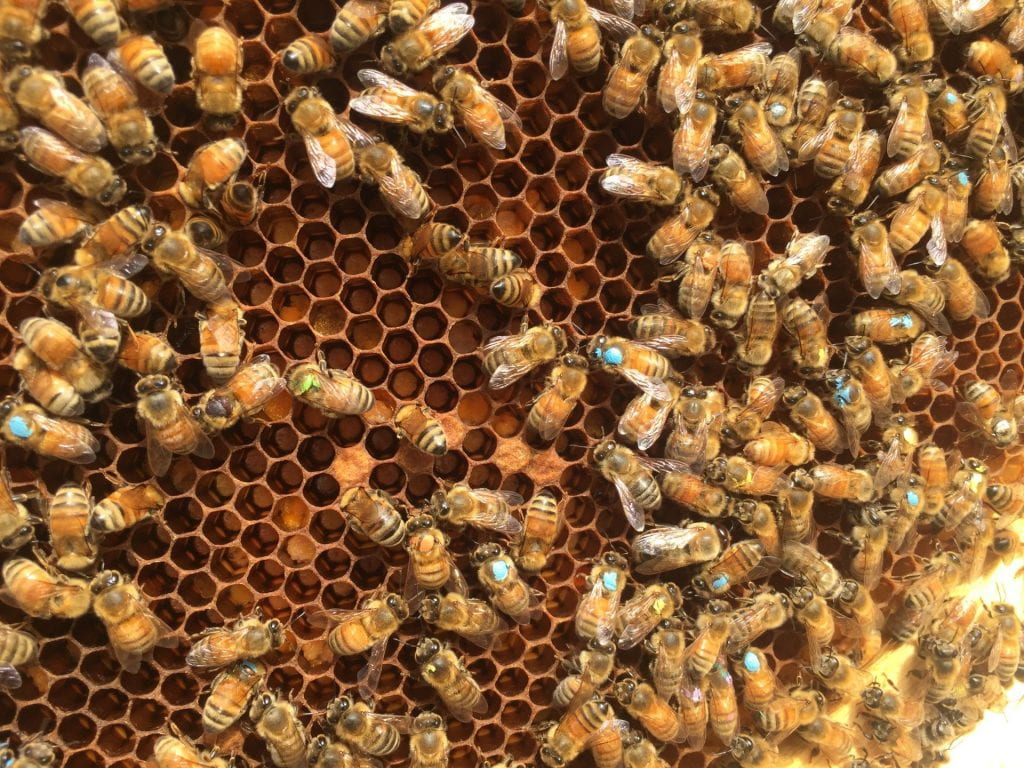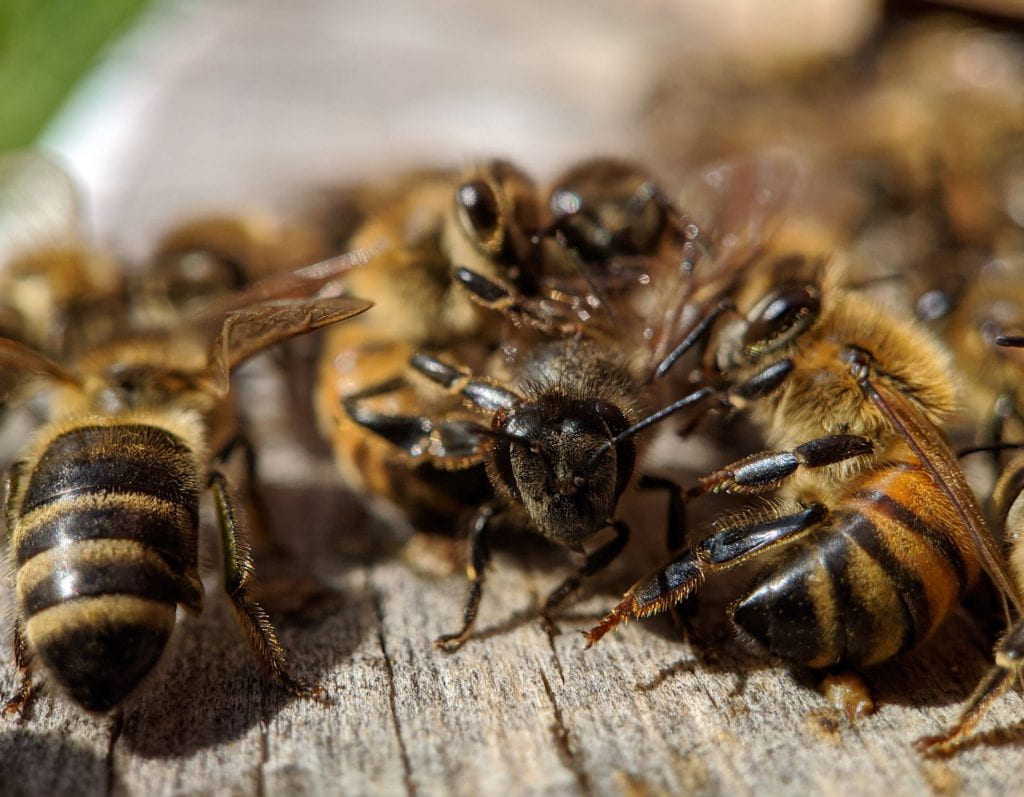We study the evolutionary, genetic, molecular, cellular, and behavioral mechanisms underlying the interaction of animals with their physical and social environments. We use the power of genetics in the fruit fly Drosophila melanogaster, the honey bee Apis mellifera, and other insect species, to ask where, when, and how the function of specific genes, cell types, and neuronal circuits affect behavioral plasticity and the behavioral response to specific environmental and social stimuli.
In the news: Cassie’s new study is featured on NPR’s All things considered and other news outlets
How Can Bees Tell Friend From Foe? All Things Considered, NPR Science column: The secret life of bee bacteria; All in a Day with Alan Neal, CBC Radio, Canada Bee microbiome smells tell nestmates apart; Eva Higginbotham, The Naked Scientist Gut Feeling: Research Reveals How Honeybees Identify Outsiders; Environmental News Network Honey bees tell friend […]
New publication: The gut microbiome defines group membership in honey bee colonies
Former graduate student Cassie Vernier published her study on the role of the gut microbiome in regulating nestmate recognition in honey bees. Study suggests that microbial genetics play a role in determining hive membership via modulation of host bee pheromones. Vernier CL, Chin I, Adu-Oppong B, Krupp J, Levine J, Dantas G and Ben-Shahar Y […]
In the news: The secret life of bee bacteria
CBC Listen Science column: The secret life of bee bacteria | All in a Day with Alan Neal | Live Radio | CBC Listen A new study published this week in Science Advances has shown the very unique way that honey bees can tell who is a member of their hive and who may be […]
Location: Department of Biology at Washington University in St. Louis
Lab: Bayer Laboratory 406
Office: Bayer Laboratory 411
Yehuda Ben-Shahar
Washington University
1 Brookings Drive
Biology Department, Campus Box 1137
St. Louis, MO 63130
Email: benshahary@wustl.edu
Office: (314) 935-3484; Lab: (314) 935-3485


